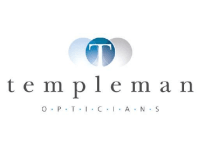Even as we age your body age, from the skin and joints to organs and muscles, but our eyes age too. When we are young the lenses inside the eyes, referred to as the natural crystalline lens, is obvious and flexible, and will focus freely from near far. People spanning various ages may need the use of glasses to help them see distance or closer, however, if we’re younger normally, this is due to form of the attention.
From across the chronilogical age of 40 natural crystalline lens begins to get cloudy and more ridged, this means that the lens can’t focus and also prior versions. This disorder is known as presbyopia. Everyone’s eyes age at different speeds, though the older we the greater the lenses cloud and be stiffer, as well as the likelihood of needing help reading or with near vision gets more apparent, as well as many the elderly cataracts will develop.
When Should You See an Ophthalmologist or Eye Clinic?
While many of the population wear glasses from your young age and can regularly see an ophthalmologist or visit a watch clinic, you can find signs you can look out for as you receive older to point out that you need to visit a specialist to read or near vision solutions;
Can not read or do other close tasks and locating have to go things even further you just read or see detail.
Which you start making headaches when reading or doing close tasks.
Finding it difficult to read terms and conditions in low light.
Developing achy eyes when reading or doing close tasks.
The aforementioned signs could mean that you’ll need to be seen to get a thorough eye exam and discuss reading or near vision solutions.
Reading and Near Vision Solutions
There are some options you might be capable to pick from in relation to looking at reading and near vision solutions.

Out of the box Reading Glasses – these are reading glasses accessible for the most part supermarkets or pharmacies, and in many cases other shops now too. They sometimes are inexpensive and may even are the first ‘quick fix’ you buy when first noticing you need help with near vision. But they might be a great option to start with, particularly if are expecting a scheduled appointment to find out a watch specialist, they will often not fully correct your eyesight. Out of the box reading glasses cannot correct when you have another reading prescription in each eye and in addition they cannot correct any astigmatism maybe you have. When they can be a good interim option, you should ensure you visit an eye fixed clinic for a full eye exam.
Prescription Reading Glasses – they’re glasses that have been custom made by an optician to fit along with your reading/near vision prescription. They’re going to consider any variations eye strength, astigmatism, and definately will nicely suit your face.
Bifocal or Trifocal Glasses – these glasses are suitable for individuals who need glasses for near, intermediate, and distance vision. Some individuals don’t like having to use many set of glasses inside them for hours bifocal glasses will correct near vision and distance vision, and trifocal glasses correct near vision, intermediate vision, and distance vision. Both choices completely customised to you personally as well as your eyes.
Treatment plans
Nowadays many people find glasses inconvenient and find they just don’t are part of their lifestyle, there is however an answer just for this, surgical procedures to take care of near vision and/or cataracts called refractive lens exchange. This treatment is very just like cataract surgery, the location where the natural crystalline lens is removed using phacoemulsification along with a new artificial lens is inserted instead. When you have a cataract this action will likely be called ‘cataract surgery’, but if you have laser hair removal purely for vision correction it is termed as ‘refractive lens exchange’ and will get rid of the growth and development of cataracts in the foreseeable future.
There are many different lens options that may be implanted as well as the one chosen will be decided through your ophthalmologist taking in to account suitability, lifestyle, as well as your expectations. All of the lens options are available in various strengths or may be customised for the eyes and there are also options, called toric lenses, which will, with the below solutions, will correct any astigmatism you might have.
Monofocal – a monofocal lens implant is employed to fix distance vision only, where after surgery you’ll still require use of reading glasses. This can be normally used for those who only want to eliminate cataracts and/or are pleased to remain using reading glasses.
Monofocal Monovision – this is where a monofocal lens of various strength is placed in every eye, one eye will likely be corrected for distance and something eye corrected to read. While some people really carry on with this configuration, others cannot tolerate the gap. This choice should be tried along first using either contact lenses or even a demonstration in clinic.
Trifocal or Extended Range – these lenses can correct near, intermediate, and distance vision and are liked by folks that want to be glasses free whenever possible.
Each of the above choices are just an overview so if you’re considering some of the options, whether surgical or otherwise not, you need to attend for a full eye examination which has a trusted eye clinic. If you’re planning on surgical options, getting a consultation having a trusted ophthalmologist, who’ll experience benefits, risks, and alternatives, is suggested.
Check out about safety precription glasses uk please visit internet page: web link.
